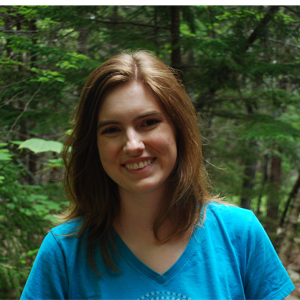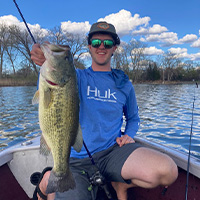Faculty Profile
Joshua Drew

Assistant Professor
Department of Environmental Biology
343 Illick Hall
Research Interests
I am an aquatic conservation ecologist working at the intersection of human and natural systems, and draws from a variety of disciplines including community ecology, biogeography, political ecology and historical ecology. Much of my work takes place in the tropical Pacific, particularly in Fiji, but I also have projects throughout New York State. For more information see the lab website www.labroides.org
Student Projects
As part of his Anthropocene Conservation class, Drew Lab studetns Kate Henderson and Megan Hazlett along with EB grad student IIlana Zeitzer published a paper called "The Geography of Publishing in the Anthropocene" in the jouranl Conservation Science and Practice. Graduate student Katy Lawson and undergraduate student Haleigh Letendre and myself have published a paper called "Historical Maps provide insight into a century and a half of habitat change in Fijian coasts" which explores how mangroves and corals habitat have ebbed and flowed over 150 years in two Fijian cities. In addition to publishing this in an open access framework, we have worked with the editors of the journal to publish an additional version of this paper in Fijian to ensure that those who are most impacted by the research have fewer barriers to obtaining this information. Additional projects are coming out so please stay tuned!
The lab
I am building a lab here at ESF and am looking to recruit students at the undergraduate, Masters and Ph.D. level to work on multiple questions involving conservation biology. I have active research projects in New York and Fiji around which I hope interested students can develop their own research questions. Our lab uses a variety of techniques including collections based research, community interviews, fuzzy cognitive mental modeling and both aerial and underwater drones to understand how biodiversity and stakeholders' perceptions vary. Ultimately the goal is to provide research that can lead to tangible conservation outcomes.
Current Graduate Advisees
 Mia Glover
Mia Glover
mglover@syr.edu
- Degree Sought: PHD
- Graduate Advisor(s): Drew
- Area of Study: Environmental & Forest Biology
 Kate Henderson
Kate Henderson
kahender@syr.edu
- Degree Sought: PHD
- Graduate Advisor(s): Drew
- Area of Study: EFB Conservation Biology
Graduate Research Topic
My research will examine changes in fish community compositions in the Oswego River watershed from 1927 to the present, and which environmental factors may have driven these changes.
 Katy Lawson
Katy Lawson
kanewcom@syr.edu
- Degree Sought: PHD
- Graduate Advisor(s): Drew and Rundell
- Area of Study: EFB Ecology
Links
Web Link
Personal Statement
Katy started a PhD program at the SUNY College of Environmental Science and Forestry in fall 2020. She works with Dr. Joshua Drew, a conservation ecologist, and Dr. Rebecca Rundell, an evolutionary biologist. Katy's research is funded by a 2020 National Science Foundation's Graduate Research Fellowship. Katy's research involves marine invertebrate biodiversity in the western Pacific. Her interests include marine invasions, invertebrate taxonomy, social-biological interaction, scuba, and biodiversity conservation. Katy worked as a Research Technician for the Marine Invasions Lab at the Smithsonian Environmental Research Center (SERC) in Edgewater, MD. She worked for the lab from April 2015 to August 2020. Katy graduated with a B.A. in Environmental Science and Maritime Studies from Williams College in Williamstown, MA in 2014. She has worked in many places including Alaska, Pacific Northwest, San Francisco Bay, Southern California, Panama, Florida Keys, Chesapeake Bay, New England Coast, Maine Coast, and Northeastern Australia. Originally from Macon, GA, Katy now lives in Syracuse, NY. She was a member of the SERC Women in Science Committee, a scholarship recipient from the Women Divers Hall of Fame, and was the intern coordinator for the Our World Underwater Lee Somers AAUS Dive Training Internship (2017-2019).
 Leah Rubin
Leah Rubin
ldrubin@syr.edu
- Degree Sought: PHD
- Graduate Advisor(s): Drew
- Area of Study: EFB Conservation Biology
 Nick Sanderson
Nick Sanderson
nesander@syr.edu
- Degree Sought: MS
- Graduate Advisor(s): Drew
- Area of Study: Environmental & Forest Biology
Graduate Research Topic
I study largemouth bass and how sportfishing tournaments impact bass dispersal, fish assemblage, and conservation ethic among anglers.
 Chloe Wang
Chloe Wang
cwang198@syr.edu
- Degree Sought: MS
- Graduate Advisor(s): Drew
- Area of Study: Environmental & Forest Biology